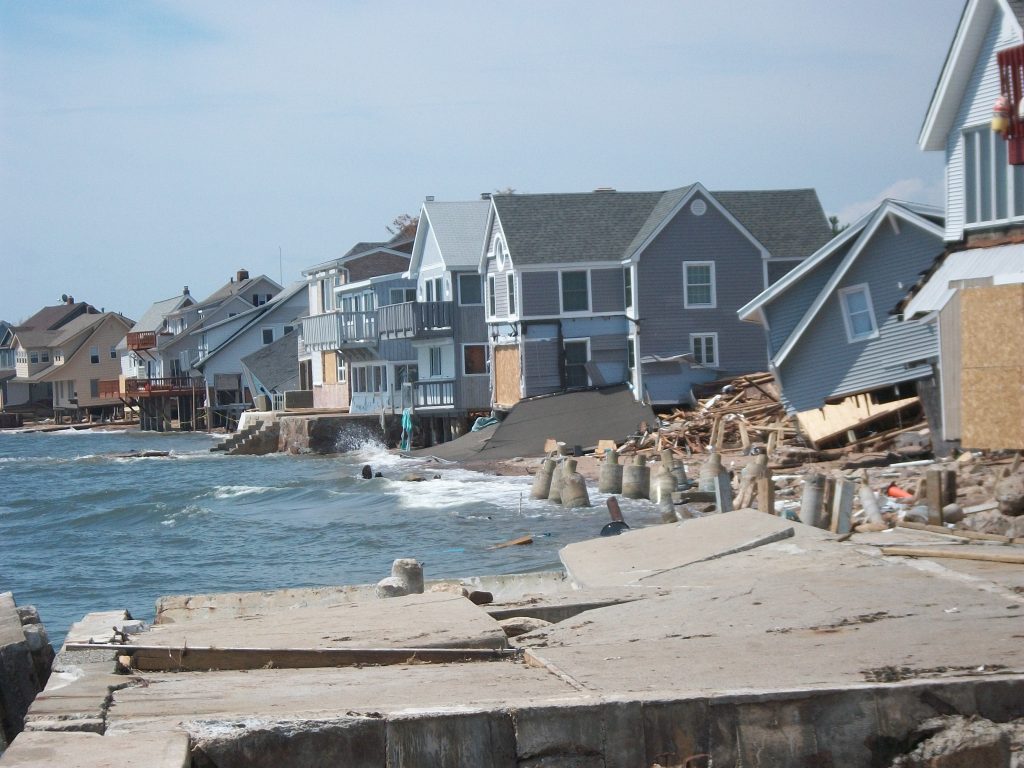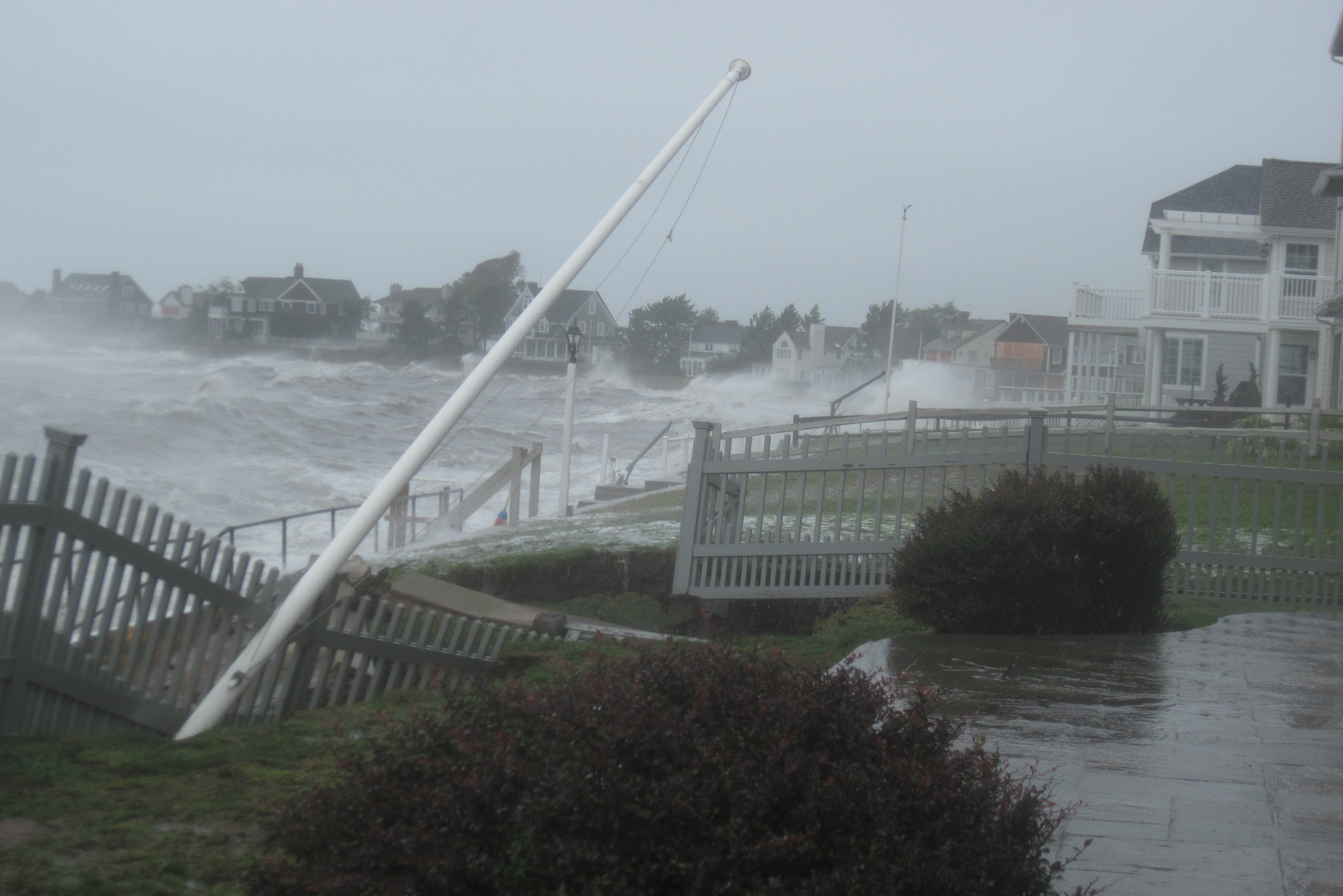In the fall of 2012, Hurricane Sandy inflicted almost $70 billion in damage and killed at least 233 people in eight countries. Connecticut was one of those states, with four reported deaths and more than $360 million in damage resulting from Sandy.
The Connecticut Institute for Resilience & Climate Adaptation (CIRCA) was established to help the state better prepare for future incidents like Superstorm Sandy. The Institute is located at UConn’s Avery Point campus in Groton.
CIRCA has recently been awarded a contract worth $8 million from the Connecticut Department of Housing for administration of a grant from the U.S. Department of Housing and Urban Development (HUD) National Disaster Resilience Competition.
Severe storms, flooding, and other effects of climate change don’t care about municipal boundaries, so CIRCA will help bring various groups together across town lines to prepare effectively. — James O'Donnell
With support from the Connecticut Department of Energy and Environmental Protection (CT DEEP) and faculty at the Urban Ecology and Design Laboratory of Yale University, CIRCA will lead efforts to develop a framework for Connecticut cities and towns to best address their specific needs for resilience planning and preparation.
“By connecting the world-class, multidisciplinary researchers who are part of UConn’s centers of excellence, like CIRCA, and the extensive practical regulatory experience in government agencies, this project will better prepare and protect Connecticut’s citizens, communities, and our natural environment from the impacts of future storms,” says Radenka Maric, UConn’s vice president for research.

The Connecticut Connections Coastal Resilience Plan (C3RP) project focuses on New Haven and Fairfield counties, where some of the state’s most vulnerable coastal communities are located and which were eligible for HUD funding.
The multi-year project has three phases. The first phase will bring together stakeholders and assess their current planning.
“While many towns and cities have already taken action, there was very little coordination between municipalities,” explains James O’Donnell, executive director of CIRCA and a professor of marine sciences at UConn. “Severe storms, flooding, and other effects of climate change don’t care about municipal boundaries, so CIRCA will help bring various groups together across town lines to prepare effectively.”
O’Donnell and other UConn researchers will also create simulations of the various options to show stakeholders how projects could impact their communities.
“A large sea wall might initially seem like the best approach, but our advanced simulations can show to what degree that would change the coastal landscape,” explains O’Donnell. “In the end, gaining consensus and exploring all of the options will help communities be informed and move forward with projects that are effective and protect the environment.”
In Phase two, O’Donnell and his research team will also employ simulations of wave models to develop the resilience framework.
A physical oceanographer, O’Donnell is an internationally recognized expert in the physical processes that determine circulation in the coastal ocean. This expertise is now being leveraged to determine how water and waves interact with Connecticut’s coastal structures, and what impact future engineering will have on coastal ecology.
With consensus and guidance from the resilience framework, the final phase of the three-year C3RP grant will move towns toward implementation. CIRCA staff will help stakeholders gather cost estimates and engineering designs and select the best path forward – whether that means a large construction project or doing nothing.
Throughout the three phases, the CIRCA team also plans to conduct several community engagement programs to support the institutionalization of resilience and climate adaptation policies and programs throughout the state.
“There is a need for researchers to translate complex science so that citizens can understand what it means for them and their communities, develop educational tools so stakeholders can better inform their constituents, policy analyses for elected officials, and sustainable design and engineering training for future construction projects,” says O’Donnell. “It really is a holistic approach to the challenges we face due to the human and environmental causes of climate change.”
CIRCA is currently seeking to fill four new positions to support this planning effort. Since its founding three years ago, the Institute has been awarded more than $13 million to work with towns, state officials, and researchers from UConn and Yale on projects that aim to protect Connecticut’s most vulnerable coastal communities. To learn more about CIRCA and its contribution to the state, visit www.circa.uconn.edu.



